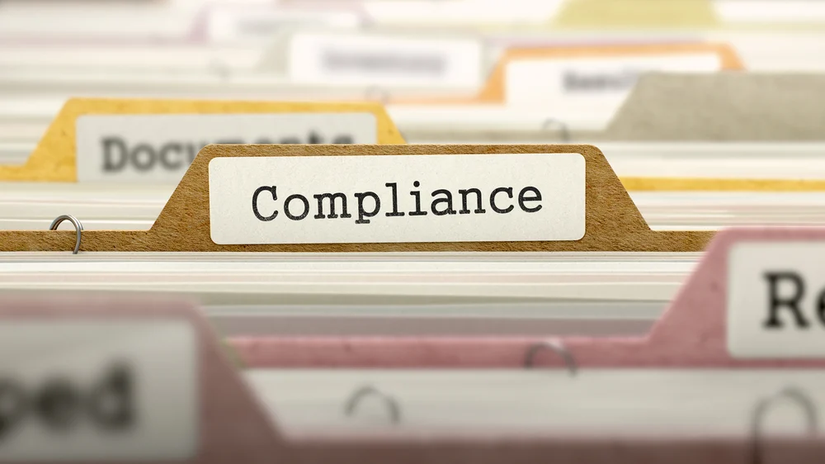Case Studies in Adaptive Compliance Training: Lessons from the Front Lines

Why Compliance Needs a New Approach
In highly regulated industries like life sciences, finance, healthcare, and manufacturing, compliance training is essential—but often outdated. Static, once-a-year training models may meet audit checkboxes but fall short in promoting true understanding and behavioral change.
As regulations grow more complex and business conditions change rapidly, organizations are realizing that traditional compliance learning—uniform courses with high completion but low retention—just isn’t cutting it anymore.
The Problem with Static Training
Many companies still rely on standardized annual compliance courses delivered identically to all employees. These systems are optimized for completion rates, not comprehension or application. The result? Risky behavior persists, and knowledge decays quickly.
For example, despite mandatory annual cybersecurity training, phishing remains a top threat. AAG’s 2025 report found phishing simulation click rates still ranged from 17% to 53%. In pharma, training 12,000 employees on launch-specific, country-specific regulations in 60 days is virtually impossible using conventional methods.
This reveals the widening gap between training events and performance readiness—and points to the urgent need for adaptive learning.
Real-World Transformation: A Global Case Study
One multinational organization operating in a tightly regulated industry reimagined its compliance training using an adaptive, AI-powered learning platform. The transformation delivered measurable impact:
- Content update cycles dropped from weeks to hours, ensuring up-to-date training across global teams.
- Personalized training paths improved learner engagement, relevance, and retention.
- Scenario-based simulations enabled real-world practice, driving confidence and decision-making skills.
- Detailed audit logs and auto-generated reports simplified regulatory reporting and proved readiness.
This success story underscores the power of adaptive learning to not only meet compliance needs but also elevate workforce capability.
Scenario-Based Learning in Action
Scenario-based training shifts compliance from theoretical to practical. Learners engage in decision-making simulations that reflect their real jobs, building muscle memory and critical thinking under pressure.
Learning science backs this up. Dr. Connie Malamed highlights that scenarios help learners form relevant mental models. Dirksen (2016) emphasizes that “if you want people to perform under pressure, you need to practice under pressure.”
In practice, this could mean:
- Healthcare providers rehearsing emergency protocols
- Bank employees navigating suspicious transaction alerts
- Manufacturing supervisors managing sudden safety violations
When paired with AI, these scenarios become even more powerful—dynamically adjusting based on performance and focusing effort where it’s needed most.
The Role of AI in Adaptive Compliance
AI enables a leap forward in training personalization and scale. Smart platforms analyze learner behavior and competencies in real-time to:
- Deliver just-in-time content and nudges
- Automatically identify outdated content and trigger updates
- Produce audit-ready logs and compliance documentation
AI also reduces the administrative burden of compliance training, giving L&D and regulatory teams more time to focus on high-impact activities.
Lessons for Forward-Looking Organizations
Implementing adaptive compliance learning isn’t plug-and-play—it requires thoughtful planning. Key lessons include:
- Define what success looks like across performance, engagement, and audit readiness
- Form cross-functional teams across Compliance, HR, IT, and Learning
- Design modular, localizable content for speed and relevance
- Use continuous data to evolve and improve your program
Those that embrace this shift early will be better equipped to manage risk, support employees, and stay ahead of regulatory changes.
How Unboxed Powers Adaptive Compliance Training
Unboxed helps regulated organizations modernize their compliance learning programs through an integrated, performance-first approach. Our solutions are designed to improve readiness—not just completion rates.
Here’s how we help:
- Spoke® Learning Platform blends LMS structure with adaptive delivery, offering compliance content tailored by role, geography, and knowledge gaps.
- Mentor™ AI Roleplay Tool lets employees practice compliance-critical conversations and decisions in realistic, judgment-based scenarios—strengthening recall and behavioral fluency.
- End-to-End Design & Support: From modular content creation to automated tracking and audit readiness, we partner with you to build compliance programs that are scalable, efficient, and engaging.
With deep experience supporting life sciences, healthcare, finance, and manufacturing, Unboxed delivers scalable, secure, and compliant learning ecosystems that keep your workforce ready for what’s next.
Final Thought: Compliance as a Strategic Advantage
Annual checklists won’t cut it anymore. The future of compliance learning is personalized, dynamic, and rooted in real performance. Adaptive systems—especially those supported by scenario-based design and AI—equip employees with the skills and confidence to navigate complex regulations and act under pressure.
Organizations that evolve their compliance strategy now won’t just reduce risk—they’ll turn learning into a competitive advantage.
Unboxed is here to help you lead that change.


